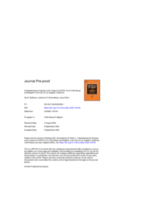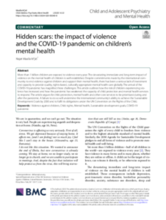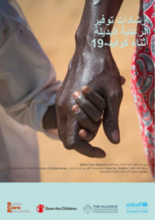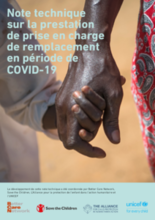This section includes resources on the response to the COVID-19 pandemic as it relates to child protection and children's care.
News on COVID-19 and Children's Care
Webinars and Events on COVID-19 Response
Displaying 241 - 250 of 756
The purpose of this study was to provide unique insights into the spatial and temporal distribution of child abuse and neglect (CAN) in relation to COVID-19 outcomes and identify areas where CAN has increased or decreased during the pandemic.
Focusing on Germany, this article aims to explore some of the effects of the COVID-19 measures on children and families. Furthermore, it examines a number of key challenges for child protection practitioners.
This article outlines how the risk of children experiencing violence has increased and how the pandemic has weakened the capacity of child protection and mental health services to respond.
This document provides practical guidance to actors in humanitarian and development contexts on the adaptations and considerations needed to support children who are either currently in alternative care or are going into an alternative care placement during the COVID-19 pandemic.
This document provides practical guidance to actors in humanitarian and development contexts on the adaptations and considerations needed to support children who are either currently in alternative care or are going into an alternative care placement during the COVID-19 pandemic.
Ce document fournit des conseils pratiques aux acteurs du monde humanitaire et du développement sur les adaptations et les facteurs nécessaires à prendre en compte pour soutenir les enfants, que ces derniers soient actuellement soumis à la prise en charge de remplacement ou en attente de placement durant la pandémie de COVID-19.
The objective of this paper is to report on the development and implementation strategy of a tool to be used for practice intervention during the pandemic.
Within the unique and understudied context of a developing economy facing the strain of an international pandemic, this study sought to expand our theoretical understanding of the individual and socio-ecological predictors of whether child protective services professionals engage in resilient behaviors.
This article interrogates concerns regarding the South African government's strict lockdown and related legislation in response to the COVID-19 pandemic and the beliefs that it advanced children’s vulnerability to abuse and neglect.
The aim of this study was to explore the experiences and impact of the pandemic and the resulting social isolation on the wellbeing and protection of children living in a residential care facility.





